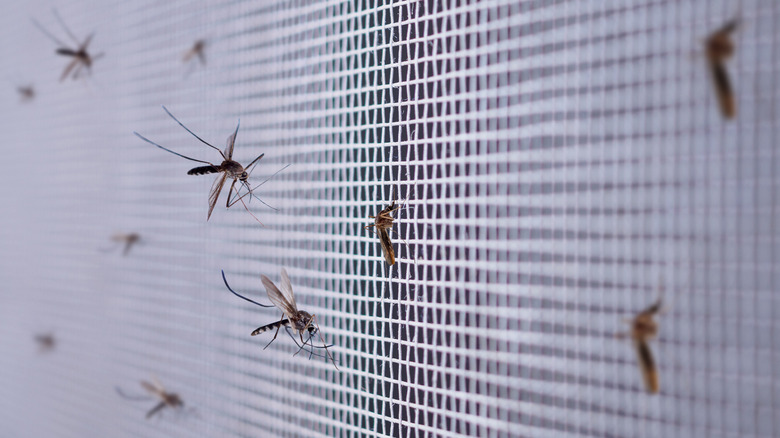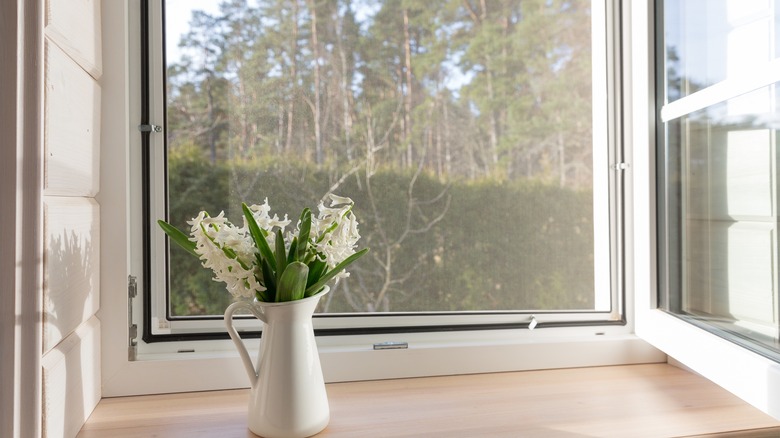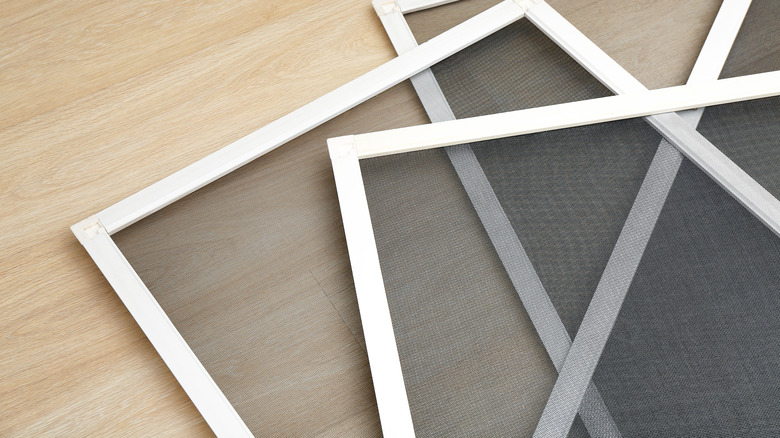Tell-Tale Signs Your Window Screens May Need Replacing
Creating more living space outdoors is a big deal these days. From patios to sliding windows that let the outdoors inside in a big way, there are copious ideas about living with nature in your backyard. Depending on where you live, these seem like wonderful suggestions. However, some folks designing those spaces have never had to sit in them, much less dine al fresco. In areas where you have an abundance of wasps, mosquitos, and even little honeybees we love but don't want in our homes, screens are our friends.
And if you've ever had squirrels tearing up your patio cushions and pillows, chances are, screens sound like a dream come true. That's why many lovely little patios are framed into less-glamourous-but-more-useful sunrooms and screened-in porches every summer. However, all those types of screened windows, along with the ones on your actual house, need to be maintained to keep the critters at bay. That's why looking for telltale signs that your window screens are on the way out should be a part of your preventative home maintenance plan.
How to know when your screens need to be replaced
While they're not something we usually think about regularly, screens protect our windows and keep pests out day after day. Working tirelessly, they typically only last 10 to 12 years before they need to be replaced, according to Quality Screen Co. LLC. When buying a new house, you know the exact age of your screens. When acquiring a pre-owned home, though, they could be as old as the house or much newer. Looking more closely at them will help you to determine if they're ready to be replaced.
Holes and tears you may not have noticed over the winter become more evident in the spring when you're ready for fresh air. That's the most obvious thing to look for when examining window screens. Even if you can't see holes, if dead insects are littering your windowsills, that's also a sign that your screens need some attention. You can try patching minor holes, but they must be replaced if the damage is more significant.
Window screens can also become dirty and need to be cleaned. But discolored screens, which translates to a sheen developing on the metal as the screen becomes weathered, will likely need to be replaced. They can also become bent and warped over time, unable to fit correctly any longer, and that's another sign that you need to replace them.
The benefits of replacing window screens
We've established that replacing worn screens can protect your windows, keep pests out, and let fresh air in, which they're designed to do. But you can take it further and move into the energy-saving zone. Yes, replacing standard screens with solar screens does reduce utility costs by keeping your home much cooler in the summer and better insulated in the winter. They also reduce the number of UV rays entering your home that can fade everything from art prints to upholstery fabrics.
Curb appeal is also a factor in window screen replacement. This is especially true if you plan to sell your house soon. As you're prepping, don't forget to inspect the screens and replace any that look less than great. Some homebuyers, however, don't like the look of solar models as much as garden variety screens. If you plan on moving, you might forego the additional expense of solar screens and install regular screens on the front of your home.


